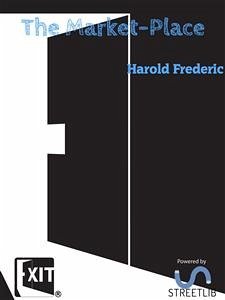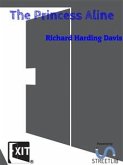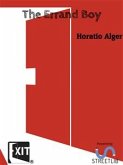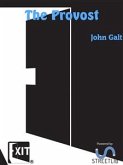CHAPTER I
THE battle was over, and the victor remained on the field—sitting alone with the hurly-burly of his thoughts.
His triumph was so sweeping and comprehensive as to be somewhat shapeless to the view. He had a sense of fascinated pain when he tried to define to himself what its limits would probably be. Vistas of unchecked, expanding conquest stretched away in every direction. He held at his mercy everything within sight. Indeed, it rested entirely with him to say whether there should be any such thing as mercy at all—and until he chose to utter the restraining word the rout of the vanquished would go on with multiplying terrors and ruin. He could crush and torture and despoil his enemies until he was tired. The responsibility of having to decide when he would stop grinding their faces might come to weigh upon him later on, but he would not give it room in his mind to-night.
A picture of these faces of his victims shaped itself out of the flames in the grate. They were moulded in a family likeness, these phantom visages: they were all Jewish, all malignant, all distorted with fright. They implored him with eyes in which panic asserted itself above rage and cunning. Only here and there did he recall a name with which to label one of these countenances; very few of them raised a memory of individual rancour. The faces were those of men he had seen, no doubt, but their persecution of him had been impersonal; his great revenge was equally so. As he looked, in truth, there was only one face—a composite mask of what he had done battle with, and overthrown, and would trample implacably under foot. He stared with a conqueror's cold frown at it, and gave an abrupt laugh which started harsh echoes in the stillness of the Board Room. Then he shook off the reverie, and got to his feet. He shivered a little at the sudden touch of a chill.
THE battle was over, and the victor remained on the field—sitting alone with the hurly-burly of his thoughts.
His triumph was so sweeping and comprehensive as to be somewhat shapeless to the view. He had a sense of fascinated pain when he tried to define to himself what its limits would probably be. Vistas of unchecked, expanding conquest stretched away in every direction. He held at his mercy everything within sight. Indeed, it rested entirely with him to say whether there should be any such thing as mercy at all—and until he chose to utter the restraining word the rout of the vanquished would go on with multiplying terrors and ruin. He could crush and torture and despoil his enemies until he was tired. The responsibility of having to decide when he would stop grinding their faces might come to weigh upon him later on, but he would not give it room in his mind to-night.
A picture of these faces of his victims shaped itself out of the flames in the grate. They were moulded in a family likeness, these phantom visages: they were all Jewish, all malignant, all distorted with fright. They implored him with eyes in which panic asserted itself above rage and cunning. Only here and there did he recall a name with which to label one of these countenances; very few of them raised a memory of individual rancour. The faces were those of men he had seen, no doubt, but their persecution of him had been impersonal; his great revenge was equally so. As he looked, in truth, there was only one face—a composite mask of what he had done battle with, and overthrown, and would trample implacably under foot. He stared with a conqueror's cold frown at it, and gave an abrupt laugh which started harsh echoes in the stillness of the Board Room. Then he shook off the reverie, and got to his feet. He shivered a little at the sudden touch of a chill.









